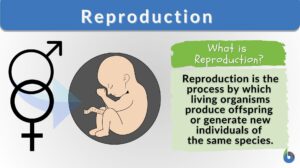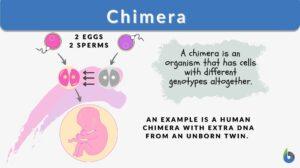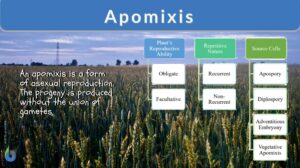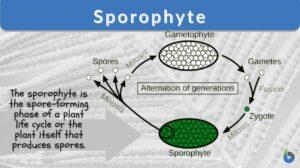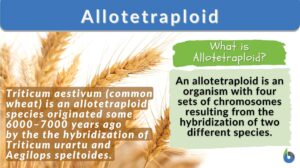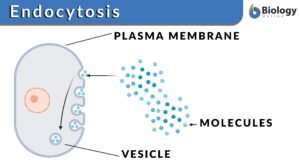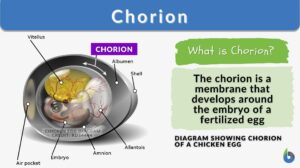Search Results for: fusion
Sexual reproduction
Sexual reproduction is a mode of reproduction involving the fusion of haploid female gamete (egg cell) and haploid male... Read More
Reproduction
Reproduction Definition Reproduction is a biological phenomenon of producing offspring/s. i.e. more of its kind. Depending... Read More
Amphimixis
Definition noun, plural: amphimixes The union or the fusion of the male and the female gametes during sexual... Read More
Asexual reproduction
Asexual Reproduction Definition What is asexual reproduction? Asexual reproduction is a type of reproduction that does not... Read More
Embryology
Embryology Definition Embryology is a branch of biology that deals with the topics concerning gamete formation... Read More
Parthenogenesis
To reproduce, by definition, means to produce new offspring. The process is referred to as reproduction, which is one of the... Read More
Golgi apparatus
Golgi Apparatus Definition The Golgi apparatus is a membrane-bound organelle in eukaryotic cells. It plays a crucial role... Read More
Sporophyte
Sporophyte Definition What is a sporophyte? Accordingly, the sporophyte is the plant generation that produces spores. To... Read More
Allotetraploid
Allotetraploid Definition An allotetraploid is an organism with four sets of chromosomes (4n). This is in contrast to the... Read More
Conjugation
Conjugation generally means the joining or coming together (union), such as in certain unicellular organisms (some bacteria,... Read More
Endocytosis
Endocytosis Definition What is endocytosis in biology? Endocytosis is a cellular process by which a cell internalizes any... Read More
Langhans giant cell
Definition noun, plural: Langhans giant cells A type of giant cell formed by the fusion of epithelioid macrophages, and... Read More
Mitochondrion
Mitochondrion Definition What are mitochondria? The term “mitochondrion” comes from the two words of the Greek... Read More
Cytokinesis
The cell cycle of eukaryotes is a cyclical series of biological events that certain asexual cells go through. The cell cycle... Read More
Fragmentation
Fragmentation Definition What is fragmentation? In general, fragmentation refers to the state or the process of breaking... Read More
Axon terminal
An axon terminal is any of the button-like endings of axons through which axons make synaptic contacts with other nerve... Read More
Phagolysosome
Definition noun plural: phagolysosomes (cell biology) A cytoplasmic body that forms from the fusion of phagosome and... Read More
Single transverse palmar crease
Definition noun The single crease or line extending across the palm, and formed by the fusion of the proximal and the... Read More
Perfect fungi
Definition noun A group of fungi that reproduce through asexual spores and sexually-produced spores Supplement Fungi are... Read More
Semilunar valve
The human heart structure consists of heart chambers (2 atria and 2 ventricles) that differ functionally from each other.... Read More
Pronucleus
pronucleus (Science: molecular biology) haploid nucleus resulting from meiosis. In animals the female pronucleus is the... Read More
Seed Plants
There are two main subdivisions of seed plants—the ones without covered seeds, the gymnosperms, and the ones with covered... Read More
Pseudogamy
Definition noun (1) A form of parthenogenesis wherein the sperm stimulates the egg cell to develop into an embryo without... Read More
Impalefection
Definition noun A method of delivering large molecules into cells using nanomaterials, such as carbon nanofibers, carbon... Read More


